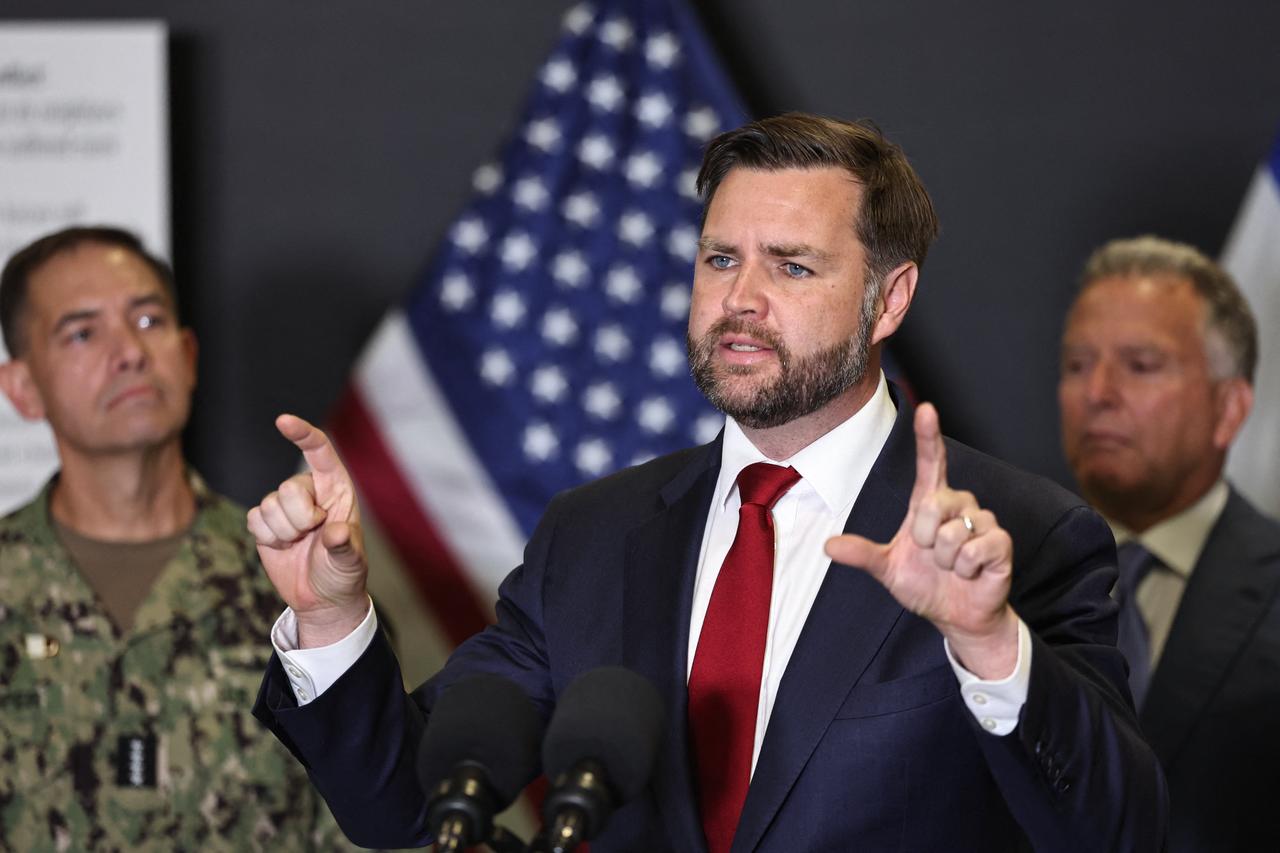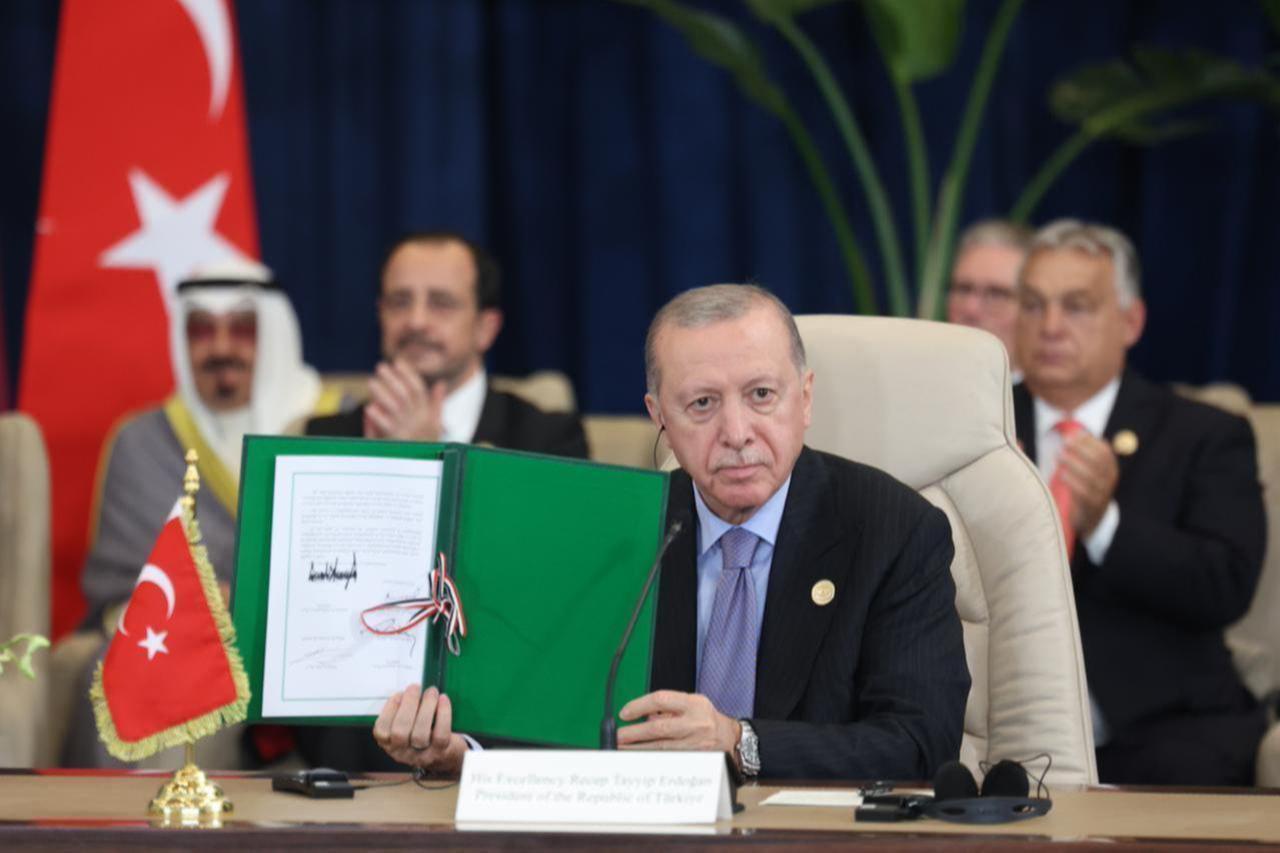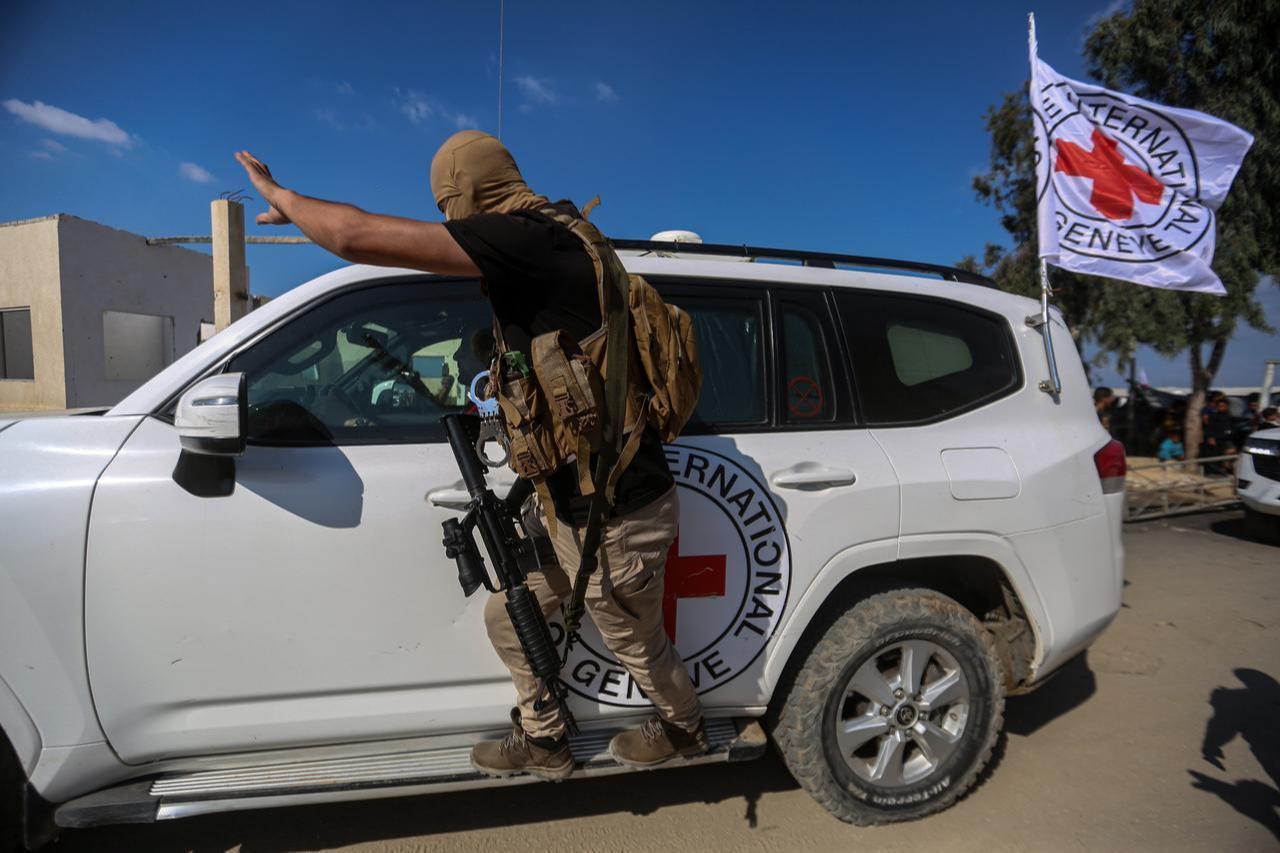
U.S. Vice President JD Vance said Tuesday that Türkiye would play a key part in enforcing the ceasefire between Israel and Hamas, emphasizing a forward-looking approach to achieving lasting peace in Gaza.
Speaking at a press availability during his Middle East visit, Vance outlined the various roles regional partners would play in stabilizing Gaza and supporting reconstruction efforts.
"We think everybody has a role to play here," Vance said. "Some of that's going to be financial, some of that's going to be in reconstruction, some of that's just in communication with the various parties."
The vice president stressed that the United States would not "force anything on our Israeli friends when it comes to foreign troops on their soil," while noting that Türkiye "has already played a very constructive role" in the peace process.
Vance acknowledged that Türkiye "has supported Hamas in the past," but said all parties to the conflict have disagreements with one another. "The way that we're going to get to peace is to focus on the future, which is what the President of the United States has asked us to do," he said.

Türkiye's diplomatic leverage proved crucial in securing Hamas's acceptance of President Donald Trump's Gaza ceasefire plan. According to Reuters, President Recep Tayyip Erdogan personally intervened to persuade Hamas leaders to agree to the deal after initial resistance. Two regional sources and two Hamas officials told the news agency that Ankara's message to the group was clear: accept the agreement.
Trump praised Erdogan's role last week, calling him "one of the most powerful in the world" and "a reliable ally" who is "always there when I need him."
Türkiye's expanded role marks a significant shift in Middle East diplomacy. The ceasefire deal follows a September meeting between Trump and Erdogan at the White House, their first in six years, which addressed longstanding disputes including U.S. sanctions on Türkiye over its purchase of Russian missile systems.
Reuters added that Ankara is now seeking diplomatic dividends from its success in brokering the Gaza deal, including progress on stalled F-35 fighter jet sales and an easing of U.S. sanctions. Türkiye is also pushing for U.S. support on security goals in neighboring Syria, where it wants pressure on U.S.-backed SDF terror group to merge into the Syrian army.

On Tuesday, Vance addressed the difficult task of recovering hostages who remain in Gaza, including deceased captives.
"It is a focus of everybody here to get those bodies back home to their families so that they can have a proper burial," he said, while cautioning that the process would not "happen overnight."
"Some of these hostages are buried under thousands of pounds of rubble. Some of the hostages — nobody even knows where they are," Vance explained. "That doesn't mean we shouldn't work to get them, and that doesn't mean we don't have confidence that we will. It's just a reason to counsel in favor of a little bit of patience."
The vice president outlined the administration's expectations for Hamas under the 20-point peace plan, which requires the group to disarm and cease violence against Palestinians.
"Our warning to Hamas is very straightforward," Vance said. "The terms of the 20-point plan that the President put out there is very clear. It's that Hamas has to disarm, it's that Hamas has to actually behave itself, and it's that Hamas — while all the fighters can be given some sort of clemency, they're not going to be able to kill each other and they're not going to be able to kill their fellow Palestinians."
Vance said the process would take time but expressed confidence in achieving a lasting peace. "If Hamas doesn't cooperate, then as the President of the United States has said, Hamas is going to be obliterated," he warned, though he declined to set a specific deadline for compliance.
The conflict began with Hamas's Oct. 7, 2023, attack on Israel that killed 1,200 people. Israel's subsequent military offensive has left over 67,000 Palestinians, mostly civilians, dead, according to Gaza health authorities.
Türkiye's expanded role in the region has raised concerns among Israel and Arab states including Egypt, Saudi Arabia and the United Arab Emirates, which have historically viewed Ankara's regional ambitions with caution. According to Reuters, Arab states shared an interest in ending the war but were wary of the larger role given to Türkiye.
Whether the ceasefire will lead to a broader resolution of the Israeli-Palestinian conflict remains uncertain. Türkiye and Arab states have noted the plan lacks a clear pathway toward a two-state solution, a longstanding Palestinian demand.